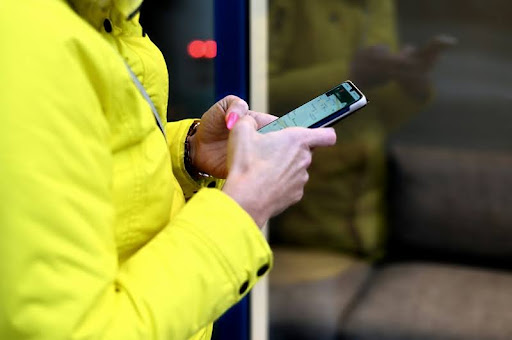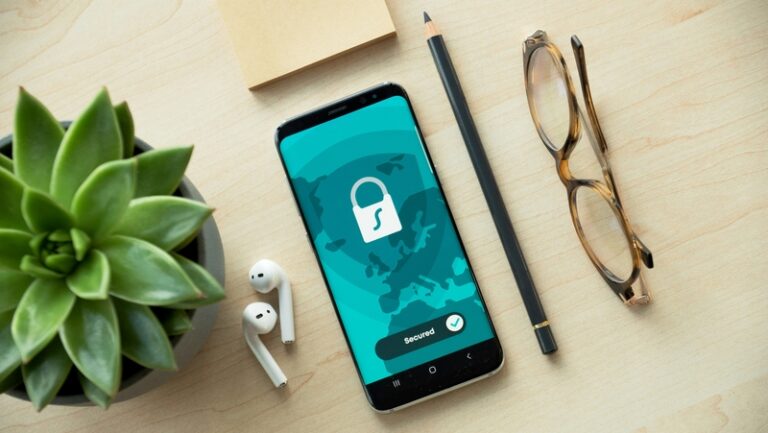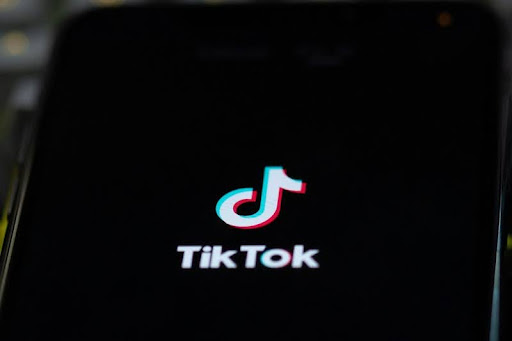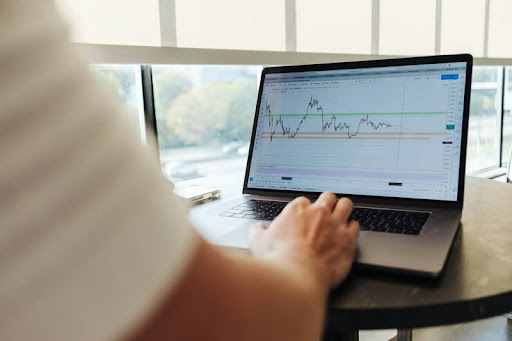
Doing the scholarship scroll—sometimes the next big opportunity is right on your screen.
Ever get the feeling that someone’s watching, or worse, listening, through your phone? It’s not just paranoia. In today’s hyper-connected world, digital privacy is more important than ever, and yes, phone tracking and eavesdropping do happen.
Whether it’s a suspicious ex, a cybercriminal, or some shady app you didn’t even know was running in the background, tracking your phone isn’t as far-fetched as it once seemed. The good news? There are real, simple ways to check if your phone is being tracked or listened to. This post breaks it all down, no fearmongering, just facts and easy-to-understand steps to protect your privacy.
Let’s dive in.
What are the signs your phone is being tracked?
If your phone’s acting weird, it might be trying to tell you something. Here are a few red flags to look for:
1. Your battery drains faster than usual
You haven’t used your phone much today, but somehow your battery’s already down to 30%. What gives?
Battery drain is one of the most common signs that something shady might be running in the background. Spyware and tracking apps often work silently, constantly pulling data or pinging your location. That nonstop activity? It eats up battery life.
Not every battery issue means you’re being tracked, of course, sometimes it’s just a bunch of open apps or an old battery, but if it starts happening out of nowhere, it’s worth paying attention to.
2. Your data usage suddenly spikes
Have you ever checked your mobile data and thought, “Wait, I didn’t watch that many videos”?
Tracking software often sends your data (location, messages, call logs) to a remote server. That can eat up a surprising amount of bandwidth. So if your data usage is much higher than normal, especially when you haven’t changed your habits, that’s a red flag.
Check your usage in your phone’s settings. On Android, it’s under Settings > Network & internet > Data usage. On iPhone, go to Settings > Cellular.
3. The phone feels hot when you’re not using it
Phones heat up when they’re in heavy use, like streaming video or gaming. But if your phone is sitting idle and still feels warm to the touch, something might be happening behind the scenes.
Tracking apps often run in stealth mode, keeping your processor active without you knowing. That activity can generate heat, even when the screen’s off.
4. You hear strange noises or echoes during calls
Ever been on a call and heard clicking, static, or echoes that don’t make sense?
That could be interference.
While it could just be a poor connection or a cheap Bluetooth headset, consistent weird audio during calls can be a sign of call monitoring. Especially if it happens regularly and only in certain conversations, it’s time to investigate.
5. Your phone takes forever to shut down or restart
If your phone stalls when powering off, that could be a hint it’s trying to end processes that shouldn’t be running in the first place, like hidden monitoring apps.
These programs try to keep themselves alive or send last-minute data before shutting down, which can delay the process.
6. You notice apps you didn’t install
This one’s a big red flag. If you spot apps on your phone that you didn’t download, there’s a chance someone else did—either physically or remotely.
Some tracking tools disguise themselves to look like normal apps, or they hide in folders. Do a routine check of your installed apps and uninstall anything that looks suspicious.
How does someone track or listen to your phone?
It’s not just spy movies anymore. Here are a few ways tracking or listening can happen, no trench coat required.
Spyware and tracking apps
This is the most common method. There are apps out there that can be installed on your phone, some even claim to be “parental control” tools, and they can track your GPS, read your texts, access your mic, and more.
Some require physical access to your phone, while others exploit security flaws to sneak in remotely.
Unsecured Wi-Fi or Bluetooth connections
Public Wi-Fi is convenient, sure. But it’s also risky. Hackers can use unsecured networks to gain access to your device.
Leaving Bluetooth on all the time can be dangerous, too. It opens the door for “bluejacking” or other methods of intercepting your phone’s data.
Physical access to your device
Even just a few minutes alone with your phone can be enough for someone to install spyware, especially if your phone isn’t locked with a password or biometric security.
So yes, handing your phone to someone “just for a sec” isn’t always harmless.
How can I check if my phone is being tracked or listened to?
Let’s get hands-on. Here’s what you can do right now to find out if your phone’s been compromised.
Review your app permissions
Go through your apps and check what permissions they have. Is a calculator app asking to use your microphone? Red flag.
On Android:
Settings > Apps > See all apps > Tap app name > Permissions
On iPhone:
Settings > Privacy & Security > Select a permission (like Microphone) > See which apps have access
Deny permissions that don’t make sense. You’d be surprised how many apps ask for more than they need.
Use anti-spyware or security tools
There are reputable apps that scan for known spyware or unusual behavior. Look for ones with strong reviews, and steer clear of “too good to be true” options.
Some solid choices include Malwarebytes Mobile Security, Norton Mobile Security, and Bitdefender.
Run a full scan and follow any recommendations it gives you.
Check your phone’s activity and data logs
Most phones track background processes. You can use this info to spot unusual activity.
Android users can use the built-in Developer Options or third-party tools like GlassWire.
iPhone users can review analytics under Settings > Privacy & Security > Analytics & Improvements > Analytics Data.
It’s a little nerdy, but patterns like frequent pings to unknown IPs or constant sensor use can signal something’s off.
What’s the best way to protect your phone from tracking?
The good news? You can take back control of your privacy. Here’s how.
Keep your phone updated
Software updates aren’t just about new emojis. They include important security patches. A study from the National Cybersecurity Alliance found that 60% of users ignore updates, don’t be one of them.
Enable automatic updates or check weekly for new releases.
Avoid sketchy downloads and links
Only download apps from the official app stores (Google Play or Apple’s App Store). Avoid clicking random links in texts or emails, especially if they say things like “urgent” or “click now.”
Phishing links are a common entry point for tracking software.
Use strong passwords and enable 2FA
A PIN is better than nothing. A complex password is even better. But adding two-factor authentication (2FA) to your accounts is the best move.
Use fingerprint or facial recognition if your device supports it.
Turn off location tracking when you don’t need it
Lots of apps want to know where you are, even if it’s not essential to how they work. Go through your settings and disable location access for apps that don’t need it.
On iPhone: Settings > Privacy > Location Services
On Android: Settings > Location > App location permissions
Also, consider turning off Find My Device unless you’re traveling or worried about losing your phone.
Factory reset if things get out of hand
This is the nuclear option, but sometimes it’s necessary. If you suspect deep-rooted spyware and nothing else is working, a full factory reset will wipe the slate clean.
Make sure to back up only essential data, and avoid restoring from a potentially compromised backup.
Stay alert, not anxious
It’s easy to spiral when you think someone might be tracking your every move. But the truth is, most cases of unusual phone behavior have simple explanations.
Still, it never hurts to be cautious. Regular check-ins, permission audits, and a bit of digital hygiene can go a long way in protecting your privacy.
Your phone is your lifeline; treat it like one.
FAQs: Is my phone being tracked?
How can I tell if someone is listening to my phone calls?
If you notice strange noises, clicks, or echoes during calls consistently, especially with one contact, it could be a sign. Also, if your phone acts strangely after ending calls, like lagging or staying warm, that’s another potential indicator.
What is the best way to remove spyware from my phone?
Run a trusted anti-spyware scan, delete unfamiliar apps, reset permissions, and if needed, perform a full factory reset to completely wipe any hidden tracking software.
Can someone track my phone without touching it?
Yes, if they trick you into clicking a malicious link, installing a sketchy app, or connecting to a compromised Wi-Fi network. Always be cautious with what you click and where you connect.
Does airplane mode stop tracking?
Airplane mode disables cellular, Wi-Fi, and Bluetooth, which can stop live tracking, but it won’t remove any spyware already installed on your device.
Can my phone be tracked if the location is off?
Yes, to an extent. Apps and tools can still gather info from Wi-Fi, Bluetooth, and even motion sensors. Turning off all connections and limiting app access is more effective.
Got a feeling something’s off?
You’re not alone. Thousands of people every year deal with phone privacy issues, and most of them never even realize it.
Take a few minutes today to review your settings, run a scan, and lock things down. Peace of mind is worth it.






